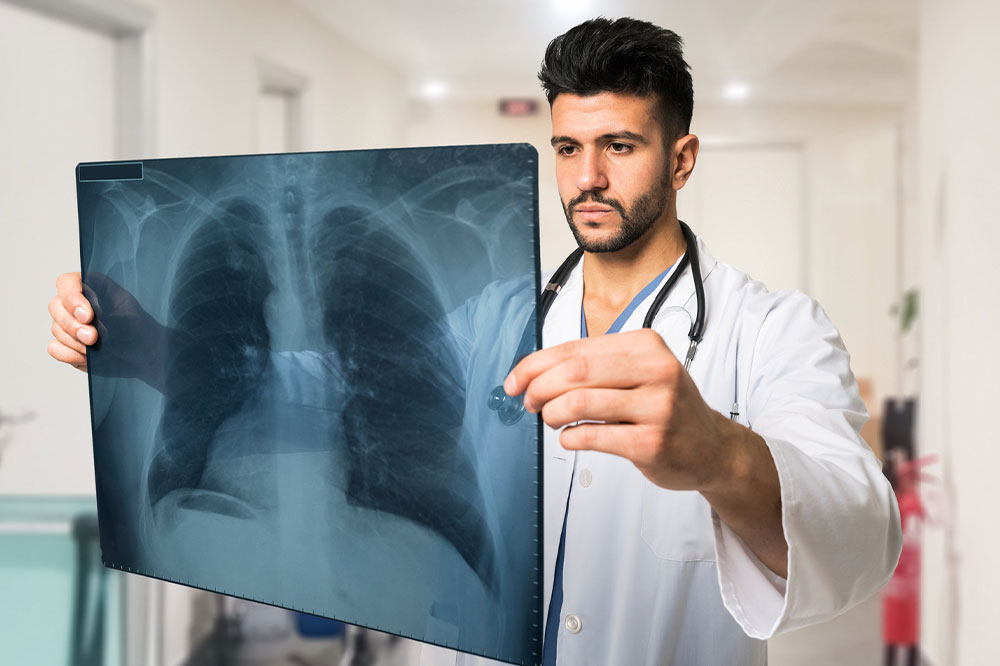
Lung cancer – Symptoms, causes, remedies, and more
When tumor growth begins in the lungs, the developing condition refers to lung cancer. In this type of cancer, the cancerous cells may multiply and spread to other body parts. The primary function of your lungs is to take in oxygen when you inhale and exhale carbon dioxide. Lung cancer reduces respiratory efficiency and is a burning issue globally these days. So let us learn more details about this disease.
Signs and symptoms
Lung cancer doesn’t cause any signs in its earliest stage. When the disease advances, the symptoms become apparent. The indications include the following:
- Headache
- Bone and chest pain
- Continuous coughing
- Shortness of breath
- Losing weight for unknown reasons
- Changes in your voice
- Swelling in lymph nodes
Causes
Exposure to toxic smoke is among the most common causes of lung cancer. This damages the cells lining the lungs and may lead to abnormal cell growth and results in lung cancer. Other causative factors include:
- Exposure to harmful gases – If you inhale radon gas produced by the breakdown of uranium in soil, water, and rock.
- Asbestos exposure – If you work in a place exposed to asbestos particles and other similar carcinogenic substances.
- Radiation therapy – If you have undergone radiation therapy for the chest.
- Family history – If an individual has or had a close family member with lung cancer, the chances of developing the condition increase in that person.
- Environmental factors – This includes air pollution, dust, smog, etc.
Treatment options
The treatment depends upon the type of tumor, the stage of cancer, the person’s overall health, and individual preferences. Some of the lung cancer remedies include:
- Surgery – where a part of the lung is removed.
- Chemotherapy – Treatment with potent chemicals that can kill cancer cells.
- Radiation therapy – Where high-energy rays are used to kill malignant tumors.
- Palliative therapy – This includes pain relief and oxygen therapy.
- Radiofrequency ablation – A thin needle is inserted, and electric shocks are used to destroy cancerous cells.
- Targeted therapy – This treatment interferes with specific proteins that help tumor growth.
Though this condition can’t be prevented entirely, you can adapt some healthy habits to reduce the risk, such as:
- Follow a balanced meal plan
- Try to avoid exposure to radon
- Include more fruits and vegetables in your meal plan
- Have a proper exercise regime
Foods that help with lung cancer
Some great choices of foods to help with lung cancer prevention are:
- Cruciferous vegetables – The most potent cancer-fighting vegetables include broccoli, bok choy, cabbage, cauliflower, and Brussels sprouts. These are thought to help with fixing cell damage caused due to exposure to carcinogens.
- Orange fruits and vegetables like papayas, peaches, oranges, tangerines, carrots, and red bell peppers prevent cancer.
- Green leafy vegetables like spinach, kale, and lettuce are good sources of folate. They help lower the risk of lung cancer.
Lung cancer is indeed a fatal type of cancer that can be controlled if diagnosed at its early stage. However, you should undergo regular screening if you are at a high risk of developing lung cancer. This can help you figure out the early signs and take the needed treatment before the tumor spreads. In addition, you should get in touch with your healthcare professional and follow a healthy lifestyle to keep the risk of the disease at bay.




